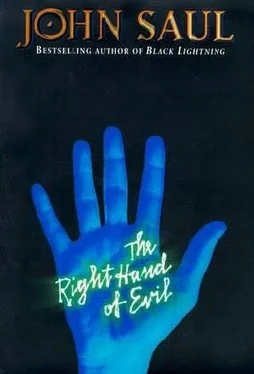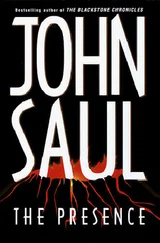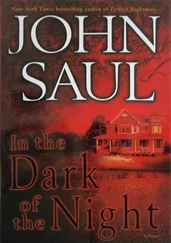Father MacNeill still hesitated, as if trying to make up his mind, though Engstrom suspected the man paused only to decide how much poison to throw in the well. "He's… evil," the priest finally said. "Whenever there have been Conway men living in this town, there has been trouble." For the next five minutes he detailed the death of George Conway, as if Phil Engstrom had never heard the story before. "As the spiritual guardian of our community, I simply don't believe I can countenance his presence here," Father MacNeill finally concluded.
Phil Engstrom leaned back in his chair and nodded in satisfaction. "I do appreciate your comin' down here to fill me in on all this, Father Mack. I purely do. And I can tell you I'll give everything you've told me every consideration if Conway ever tries to bring a variance up before the council." He glanced at the clock on the wall with a practiced manner that would ensure that his visitor not only saw him, but thought he was trying to check the time surreptitiously. "It's people like you who make this town what it is," he went on, launching into what he and Marge called his Exit Speech. Sure enough, the priest was already getting up from his chair, so Engstrom quickly got to his own feet and strode around the desk to walk his visitor to the door. He went through the rest of the speech, putting a genial arm around the priest's shoulders as he opened the door. "I know how busy you are, and I can't thank you enough for cuttin' into your schedule."
When Father MacNeill had left, Phil Engstrom went back to his desk, sat down in the big black-leather executive chair the council had approved for him only last year, and swiveled around to gaze out the window. It was a view he never tired of. The town square was spread out across the street, and beyond that lay a neighborhood of generously proportioned old houses, most of them sitting on lots of at least half an acre, shaded by huge spreading oaks and magnolias that seemed to throw a comforting green quilt over the whole town. But in the midst of that neighborhood, its steeple poking through the leafy canopy like a needle through the quilt, was the church of St. Ignatius.
It was also a needle in Phil Engstrom's side, a constant reminder that his was not the only power base in St. Albans, and that if he wanted to keep his office, he'd better pay more than simple lip service to Father MacNeill.
Not that there could be anything to what the priest had told him; the very idea that Ted Conway was "evil" was ridiculous on the face of it. Still, if a man wanted to remain in that big black-leather chair-and Phil Engstrom very much liked being mayor of St. Albans-he had to choose his battles carefully, and Ted Conway's battle was one he didn't need to fight. Maybe it might be just as well to put a few well-placed words in certain of the town's ears, he thought. Of course, if he let Father Mack have his way on this, he'd have to find another issue-something trivial, preferably-upon which to thwart the priest, so MacNeill didn't start getting any ideas about who was really in charge. Sighing, and wondering if maybe he could trade off his support for the priest on this hotel deal for a few Sundays on the golf course, he reached for the phone. A few well-placed calls would get "a groundswell of public opinion" rolling against whatever plan this Conway person might have in mind. But just as his fingers touched the receiver, the instrument came alive, and he heard Myrtle Pettibone's voice float over the intercom.
"There's a Mr. Conway here to see you," his secretary said. "A Mr. Ted Conway?"
Phil hesitated, but only for a moment. Might as well at least have a look at the chicken whose head he was about to chop off. "Well, send him on in," he boomed, already preparing his warmest smile of welcome. "Don't keep him waiting, Myrt. Just send him on in!"
Half an hour later Phil Engstrom was once again alone in his office, but when he picked up the phone, it wasn't to start torpedoing Ted Conway's plan. In fact, sometime in the last thirty minutes he'd completely changed his mind about where he stood on this particular deal. Ted Conway, it turned out, wasn't the man he'd been expecting at all. In fact, he'd turned out to be a downright fine fellow-"charming" was the word his wife would have used-and everything he'd said had made perfect sense to Phil Engstrom. By the time the half-hour meeting had ended, he knew Conway was not only a man he could work with, but a man he could be friends with, as well. But if he was going to go against Father Mack on this thing-and he surely was-he would have to be subtle.
Dialing his home number, Phil drummed his fingers impatiently on the desk while he waited for Marge to answer, meanwhile steeling himself to keep even the slightest trace of annoyance out of his voice when she finally did. He'd learned years ago that there wasn't any point in riling up a horse you were planning to break. "I think we ought to be havin' those new people to a dinner party," he said after his wife had finished repeating every word she and her mother had exchanged that morning. "Maybe on Saturday night."
"This Saturday?" Marge fretted. Phil read her intonation perfectly: Marge always worried that if she called people for dinner less than two weeks in advance, it might look as though the Engstroms' calendar wasn't full. "Don't you think it's awfully late to be-"
"Now, honeychild," Phil cut in smoothly, "you know people always love your fried chicken. I can't think of a single person in this town who wouldn't drop whatever they're doing for one of your dinners. And I want you to invite the new people-the Conways." There was a long silence, and for a moment Phil was afraid Father Mack might already have talked to his wife. But when Marge finally spoke, he relaxed.
"You're up to something, aren't you?" she asked.
"Who, me?" Phil countered with exaggerated innocence. Home free.
"Don't you try to fool me," Marge scolded. "I know how you stay mayor of this town."
"And how you stay Mrs. Mayor," Phil replied. "Here's what I want you to do…" As he talked, he could almost see Marge making quick notes, already planning the menu, the flowers, the seating plan, and every other detail that would make the evening perfect.
Marge would set the stage.
He would introduce the cast.
But the rest would be up to Ted Conway; the man would have to sink or swim on his own.
Either way, nobody would ever be able to accuse Phil Engstrom of having taken a stand.
Still, he'd go this far. After all, Ted Conway had struck him as a hell of a nice fellow, and it couldn't hurt just to introduce the man to a few people.
Could it?
The clouds gathering in the sky were a perfect reflection of Janet's mood-dark and angry, promising that before the day was over a major storm would rage over St. Albans. But there would be no storm in the Conway house that day. No matter what Ted's condition might be when he eventually came home- if he came home-she would ignore it. Her suitcase was already packed and waiting by the door next to the boxes she'd packed for the children. She would simply put Molly in the Toyota, pile the boxes in, and leave. If school wasn't yet out, she'd wait for the twins in front of St. Ignatius, and they'd leave from there.
No more arguments.
No more fights.
No more scenes.
But what if Ted didn't come home?
What if he'd wrecked the Toyota?
That won't happen, she told herself.
But what if it did?
She tried to come up with a list of people she might call to come and rescue her and the children from St. Albans. Only there wasn't a single person she felt she could ask to come down and pick them up.
And that, she thought morosely as she gazed out at the gathering thunderheads, was something she should have thought about years ago, when she first realized Ted's drinking was eroding her friendships. In those days, she'd told herself her friends were wrong about Ted, but now, nearly twenty years later, she knew they hadn't been.
Читать дальше












